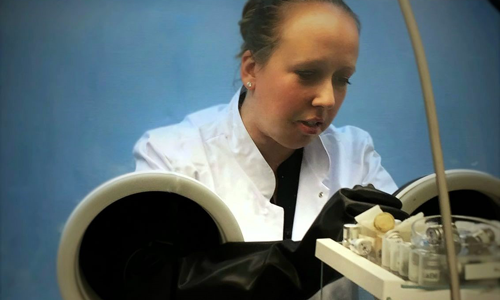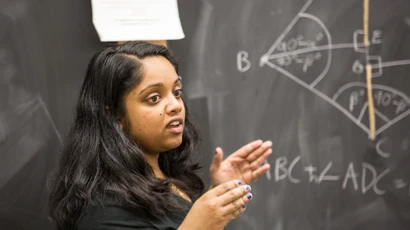Galileo said that mathematics is the language of science. The STEM disciplines (science, technology, engineering, and mathematics) are full of opportunities to use math to express and solve problems. Whether you’re designing aircraft wings, computing the spin of a subatomic particle, optimizing circuitry, modeling the impact of pollution on an ecosystem, or creating CGI animation for the movies, math provides the essential tools.
With a degree in Mathematical Sciences, you’ll be prepared to model and solve real world problems, to analyze data, to think logically and critically, and to draw sound conclusions using quantitative reasoning. Just as importantly, it’ll prepare you for a career of lifelong learning, giving you the flexibility to learn new skills and technology and to adapt to an ever-changing STEM landscape.
Here’s just one example: If you’re interested in a career in meteorology, this is what the Graduate Program in Atmospheric Science at the University of Washington has to say about your college background:
Do I need to have a degree in Atmospheric Sciences to be eligible to apply to your program?
No – graduate students in the atmospheric sciences come from a variety of disciplines…. Students of atmospheric sciences should have in common a sound background in the fundamentals of physics and applied mathematics and an interest in complex natural phenomena.
Interested in Environmental Science? Fredonia offers an Interdisciplinary Studies Major in Environmental Science. Pairing this up with a second major or minor in Applied Mathematics would be a distinctively strong background for graduate school or the job market.
Biostatistics is an emerging high-demand field that involves applying statistical methods to research in public health and medicine. If you’re interested in preparing for a career in biostatistics, start by declaring a major in Applied Math with a minor in Statistics, complement it with extensive coursework in biology and chemistry, and make sure you learn some programming and how to use statistical software.
Interested in engineering? Consider Fredonia’s Cooperative Engineering Program, with a major in Mathematics or Applied Mathematics.
Telecommunications? Big data? Robotics? For any STEM career that interests you, chances are good that a major or minor in Mathematical Sciences will strengthen your preparation and enhance your resume. Discuss your interests and career plans with your advisor in order to identify the right academic program and coursework for you.

Pictured: Eteri Svanidze, class 2009, double major in Mathematics and Physics. Eteri is currently a Postdoctoral Fellow at the Max Planck Institute for Chemical Physics in Dresden, Germany.

